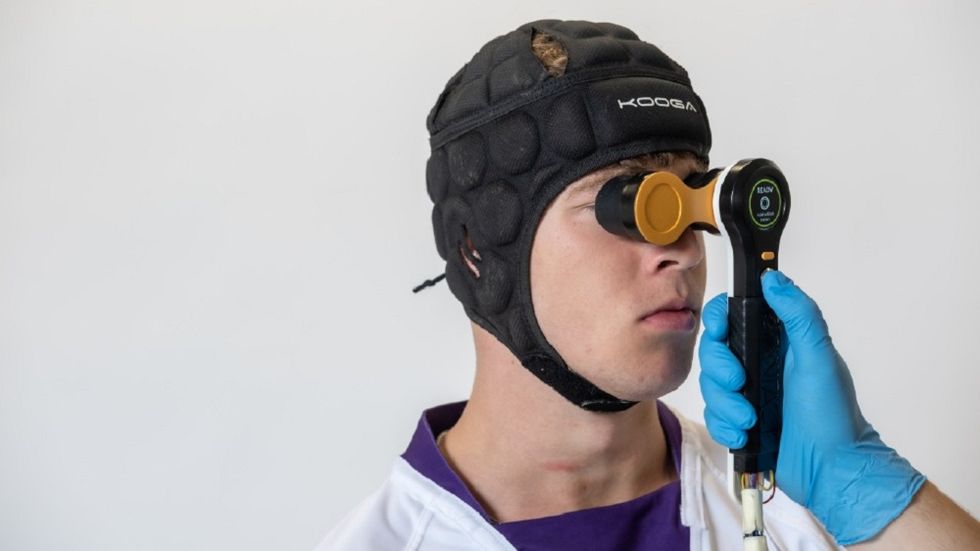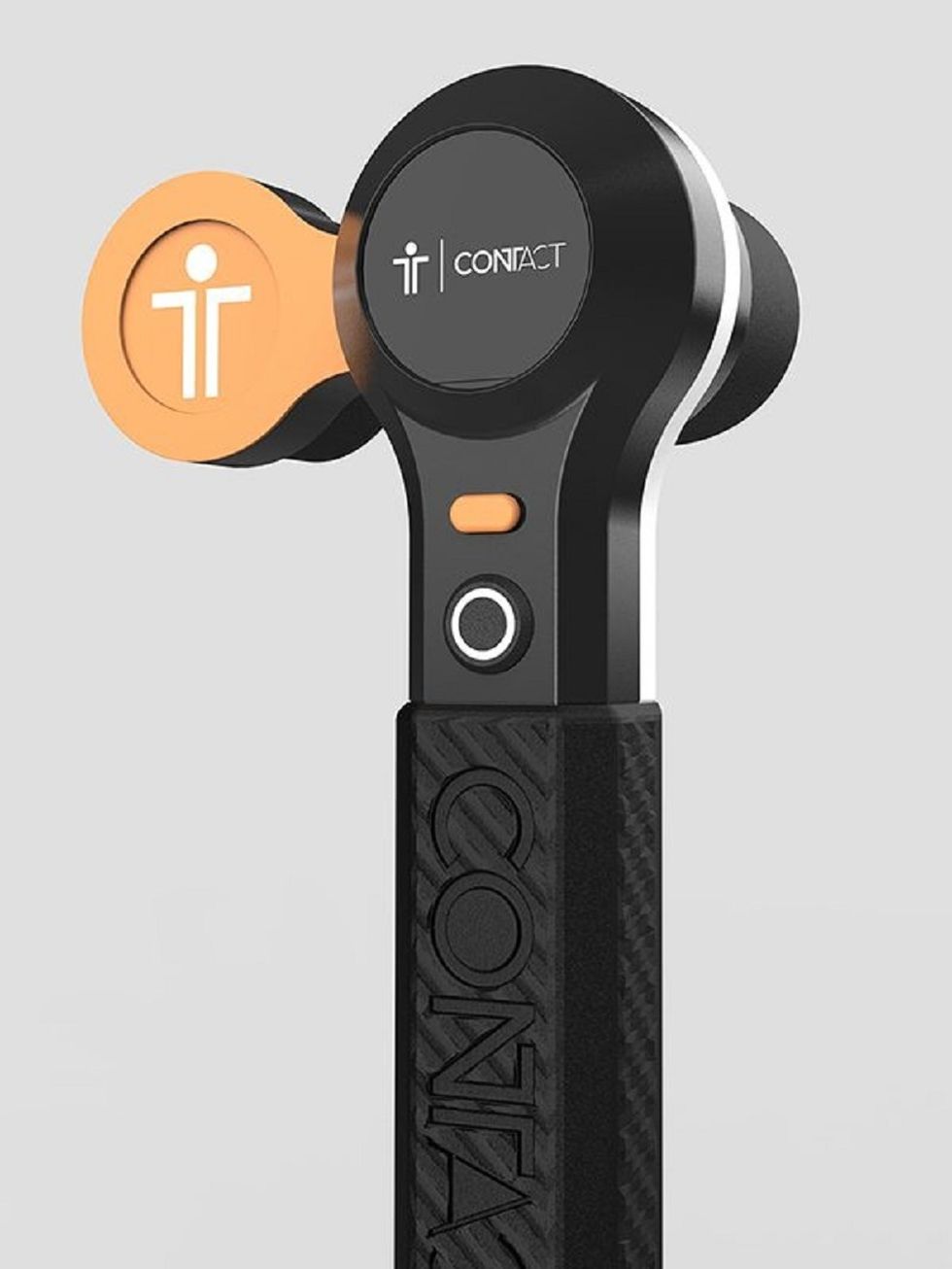
A university student has designed a prototype of a device which can detect sports-related concussions in under 10 seconds.
Joel Poulter designed the handheld CONTACT device to provide objective, rapid assessments of players so decisions can be made on and off the field which prioritise player safety.
Mr Poulter, who graduated with a Bachelor of Science in product design and technology from Loughborough University in Leicestershire earlier this year, designed CONTACT after his own experiences of concussion during 15 years of playing rugby.
It detects abnormal changes in a person’s pupils by shining a light into the user’s eyes, which measures factors including pupil size, how quickly they constrict and how quickly they respond to the light stimulus, all of which are inhibited by traumatic brain injuries.
These are then compared to a baseline pupil reading, taken before a game begins, to determine whether a player is concussed.
Mr Poulter, 23, said: “Detecting concussions early is incredibly important as returning to play prematurely after a concussion risks ‘second-impact syndrome’, which is often fatal.
I’ve had multiple firsthand experiences with concussion, and I have friends that have suffered from the consequences of concussions, causing them to take a step back from playing entirely
Joel Poulter
“Multiple sports concussions are also linked to long-term health problems, including chronic traumatic encephalopathy, or CTE, which can lead to dementia in later life.
“I’ve had multiple firsthand experiences with concussion, and I have friends that have suffered from the consequences of concussions, causing them to take a step back from playing entirely.
“I’m very aware of how tough it can be to spot a concussion from a personal and external perspective.
“I wanted to develop a non-subjective test that gives a rapid assessment and can be used at all sporting levels, particularly at amateur games where there is often little-to-no medical support and therefore concussions are likely to be missed.”

Concussions are often measured using a “follow my finger” test, which provides subjective results.
Mr Poulter’s prototype is able to measure a pupil response in both eyes, captured by an internal infrared camera.
It has been trialled with nine participants, with analytical software used to determine a pupil’s maximum and minimum size, constriction speed and how long it took for a pupil to respond to the light stimulus.
This could prevent serious health issues and players having to walk away from the sport they love
Joel Poulter
It is hoped the software can be integrated into CONTACT moving forward, alongside an app that provides medical guidance and data.
Mr Poulter said: “I want CONTACT to become a tool used by every club, school, and university so we can tackle concussion in all contact sports.
“If concussions can be accurately detected, recovery can be prioritised, and we can ensure players only return to the field once fully recovered.
“This could prevent serious health issues and players having to walk away from the sport they love.”
Loughborough University was named the best university in the world for sports-related subjects in the 2023 QS World University Rankings, the seventh consecutive year it has won the award.
CONTACT was showcased at the university’s School of Design and Creative Arts Degree Show and Foundation Exhibition Student Showcase in June.













